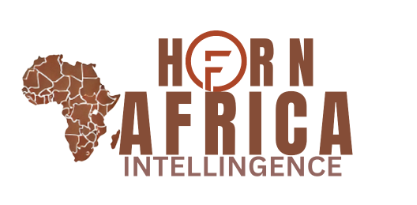More than 50% of the income generated by the Land Management Department of Banadir Regional Administration goes to a private company called NOVATECH, which is owned by sitting members of Parliament and Council of Ministers. This is not just corruption in its most brazen form—it is a deliberate, systemic compromise of public interest, public funds, and public data.
Land management is one of the most sensitive departments in any government. It controls property ownership, access to land, leases, deeds, and urban development. In Mogadishu, where land disputes have historically led to violence, displacements, and clan tensions, the department’s role is critical. It is supposed to manage land on behalf of the public, protect legal ownership, and ensure fairness in allocation. When such a sensitive institution becomes a revenue stream for politicians through a private company they secretly control, it becomes a national threat.
NOVATECH’s involvement in land management operations is not a technical support role. It is a profit-making arrangement where the company is guaranteed a share of the department’s income—more than half of it. That means every land certificate issued, every lease signed, every document processed through this department is lining the pockets of politically connected individuals, not going to improve the city’s infrastructure, not funding schools or hospitals, not supporting housing projects or basic urban planning.
The most dangerous part is not just the money. It’s the data. The Land Management Department holds critical information: who owns what, the size and boundaries of properties, unresolved disputes, urban maps, government reserved lands, and more. Giving this access to a private company—especially one owned by sitting politicians—is reckless and irresponsible. NOVATECH has the keys to the land records of Mogadishu. With a few keystrokes, ownership can be changed, land can be reassigned, and public lands can be quietly transferred into private hands.
Who audits this company? Who regulates it? Who ensures that it isn’t fabricating or erasing records to benefit its owners or punish political opponents? No one. That’s the problem. Because it is owned by people in power, it is above scrutiny. No public tender was made, no competition, no transparency in awarding this company such a massive role in one of the city’s most powerful departments.
This is not a simple case of outsourcing. It’s a hijacking of public revenue and a monopolization of state functions. It makes the government look like a shell while private actors, hiding behind official titles, control the money and the information. There is no clearer example of state capture than this.
The consequences are grave. First, this kind of arrangement discourages investment. Any Somali investor, diaspora member, or businessperson wanting to invest in Mogadishu real estate must now deal with a department that is partially privatized and controlled by politicians. That means the process is neither neutral nor fair. It opens the door to extortion, bribery, favoritism, and even land theft. It creates a system where those without political connections have no protection.
Second, the residents of Mogadishu lose faith in government institutions. When they see that half the money they pay to get a land certificate is going to a private company linked to government officials, they feel cheated. They stop believing that public offices serve the people. This kind of arrangement reinforces the idea that everything in Somalia is for sale, including land ownership and government documents.
Third, this creates a permanent conflict of interest. How can a Minister or MP make laws or policies about land while personally profiting from the very system he is supposed to regulate? How can they be trusted to act in the public’s interest when their income depends on a private company that feeds on public money? It turns governance into a business, with laws shaped to protect profits, not people.
The financial loss is also staggering. The BRA is chronically underfunded. Roads are broken, sanitation is poor, drainage systems are failing, and housing shortages are widespread. Yet over half of the income from one of its most important departments is going to NOVATECH, a private pocket of the political elite. That is theft, plain and simple. It is money stolen from Mogadishu’s future.
What makes it worse is the silence. No official audit has been made public. No minister has answered questions about how NOVATECH got this contract. The Parliament is silent, even though some of its members are known to be shareholders. The mayor has not explained why this company continues to operate without accountability. The public is left in the dark while millions of dollars disappear into the hands of a few.
This must stop. Public data belongs to the public. Public money must serve public needs. If there are technical gaps in the Land Management Department, the solution is to build institutional capacity—not sell it off to a company owned by those already in power. If this arrangement continues, it will not only bankrupt the BRA but will also deepen corruption, breed inequality, and fuel more land disputes that could lead to unrest.
The President, the Prime Minister, the Auditor General, and every responsible leader must act now. NOVATECH must be investigated. The contract must be made public. The income going to private pockets must be redirected to the people of Mogadishu. Anything less is complicity. And the people will not forget.













